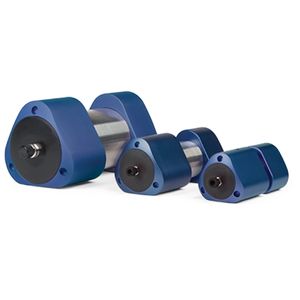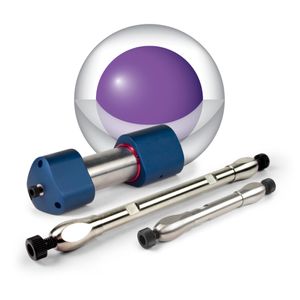Immunology Webinars
Follow a curation of discoveries and updates in immunology focusing on immune responses to infectious disease, structure and function, and developments in the defense against infection by watching and engaging in these webinars.
Show More
-
NOV 20, 2024 | 7:00 AMDengue is rapidly emerging as a major global health threat, exacerbated by climate change and unplanned urbanization. This webinar will explore the increasing burden of dengue as it spreads...
-
NOV 19, 2024 | 8:00 AMCimeio Therapeutics is an applied gene editing and immunotherapy company developing a portfolio of Shielded-Cell & Immunotherapy Pairs™ (SCIP). Gene editing is used to introduce single nucle...
-
NOV 14, 2024 | 12:00 PMAntibody-drug conjugates (ADCs) represent the most successful class of active targeting drug-delivery systems, however, despite the increasing number of FDA approvals treatment-related adver...
-
NOV 14, 2024 | 10:00 AMProjects like the Human Immune Health Atlas are an example of the multi-team, high parameter, “big” science that the Allen Institute is known for. The challenge begins when it is...
-
NOV 14, 2024 | 12:00 PMC.E. CREDITSSingle-cell sequencing (scSeq) is transforming disease research by revealing the intricate diversity across cell populations, uncovering crucial biomarkers and therapeutic targets often mask...
-
NOV 14, 2024 | 8:00 AMC.E. CREDITSMaintaining consistent assay performance over time is critical for clinical laboratories....
-
NOV 13, 2024 | 11:00 AMThe STELLARIS confocal platform offers significant advancements for high-multiplex strategies, integrating a tunable white light laser (WLL) with an excitation range from 440 nm to 790 nm an...
-
NOV 13, 2024 | 10:00 AMC.E. CREDITSIn 2022, there were approximately 1.4 million new cases of prostate cancer reported globally and over 397,000 deaths reported globally. PSA testing can have significant value in detecting me...
-
NOV 07, 2024 | 11:00 AMFluorescent dyes are molecules that are widely used in fundamental research, industrial R&D and manufacturing, medicine, and other industries. To successfully implement all advantages of...
-
NOV 07, 2024 | 8:00 AMHigh resolution surveys of the tumor microenvironment (TME) are needed to obtain a holistic portrait of the genetic, epigenetic, and cellular factors contributing to cancer progression. To t...
-
NOV 07, 2024 | 8:00 AMPneumonia is an important infectious disease associated with high morbidity, mortality, and health costs worldwide. Unfortunately, the causative pathogens cannot be identified in approximate...
-
OCT 30, 2024 | 11:00 AMCharge heterogeneity in monoclonal antibodies can negatively impact binding affinity and potency, so it is critical to ensure that individual charge variants of biotherapeutic molecules are...
-
OCT 24, 2024 | 10:00 AMNGS enables the in-depth analysis of the genome and the identification and investigation of disease-associated variants – especially when workflows include target enrichment, which foc...
-
OCT 22, 2024 | 6:00 AMThe oral cavity acts as the gateway to the respiratory and digestive tract, and is in continuity with the skin, sharing several of its features and structure. The oral cavity consists of var...
-
October 15, 2024 | 7:00am PDT, 9:00am CDT, 10:00am EDTAdvancements in spatial proteomic workflows, featuring enzyme-activated spatial amplification reagents, have revolutionized cancer research capabilities. This webinar will include an explana...
-
OCT 10, 2024 | 11:00 AMClass II Biosafety Cabinets (BSCs) are a staple in basic science laboratories. With many choices available, it can be difficult to select a BSC that provides the safest, smartest experience....
-
OCT 10, 2024 | 9:00 AMIn this webinar, we will discuss the technique of critical point drying for the preparation of biological and materials science samples for electron microscopy. As hydrated samples cannot ge...
-
OCT 02, 2024 | 11:00 AMInflammatory skin disorders comprise a diverse set of conditions exhibiting unique characteristics. Our objective was to systematically compare the affected and unaffected skin of individual...
-
OCT 01, 2024 | 7:00 AMThe human antibody repertoire, or reactome, is a vast and dynamic network of antibody-antigen interactions that plays a crucial role in health and disease. Understanding the complexity of th...
-
SEP 26, 2024 | 10:00 AMAdvances in spatial biology enable scientists to visualize multiplexed biomolecules across multiple 'omics technologies at single-cell resolution. However, all of these technologies requ...
-
SEP 25, 2024 | 7:00 AMC.E. CREDITSThe cellular physiology of microbes can vary significantly within a population, even when exposed to identical external conditions. Recent theoretical and experimental studies have shown tha...
-
SEP 24, 2024 | 8:00 AMMicroplate readers are an essential tool in many laboratories - aiding researchers in a wide range of applications, including quantifying analytes, studying cellular processes, and assessing...
-
SEP 19, 2024 | 11:00 AMC.E. CREDITSHeart failure, in the simplest of terms, indicates that a problem with the ventricles is preventing the heart from filling and/or pumping correctly. It is the result of a complex mechanical...
-
SEP 19, 2024 | 9:00 AMUnleash the power of electroporation with the Neon NxT Electroporation System. Join us for an insightful webinar where we demystify the basics of electroporation and guide you on how to opti...
-
SEP 12, 2024 | 8:00 AMNeoantigens are among the newest promising targets for cancer treatment. Unlike tumor-associated antigens, neoantigens are produced only by tumor cells. These unique molecular markers are hi...
-
SEP 10, 2024 | 6:00 AMWastewater surveillance is an emerging science that can be a critical public health tool for infectious disease surveillance. However, it is currently limited by a lack of standardized metho...
-
SEP 04, 2024 | 7:00 AMJoin us for a whimsical and educational journey into the microscopic world of RNA in our upcoming webinar. This engaging session tells the story of an RNA molecule and its friends from their...

































































